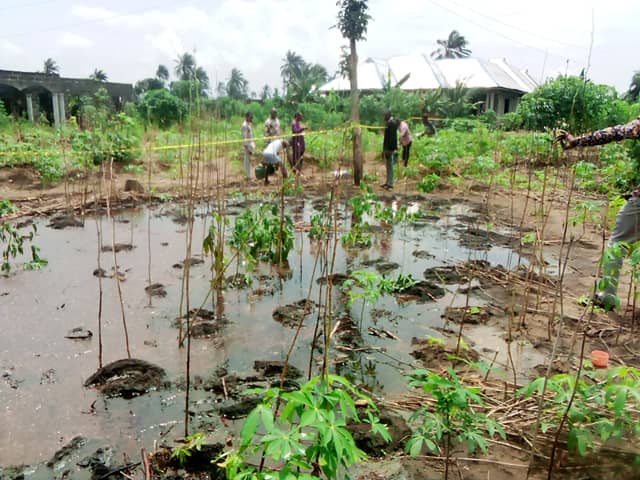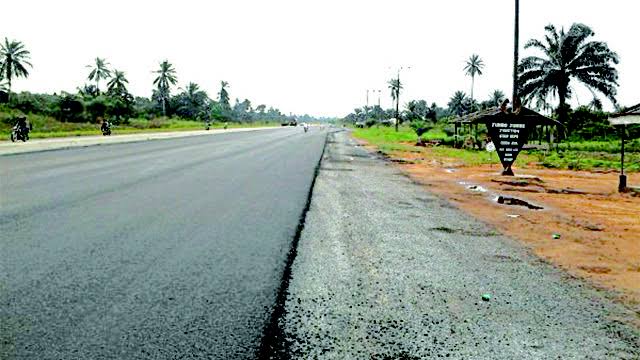A fresh oil leak has occurred on the Trans-Niger Pipeline, operated by Shell Petroleum Development Company joint venture (SPDC JV) in Bodo community, Rivers state.
The community had in 2008 experienced two large-scale oil spills from SPDC’s facilities.
In 2015, Shell agreed to pay £55 million ($83 million) to Bodo villagers as a settlement agreement for oil spills and to clean up their lands and creeks.
Residents told TheCable that the underground pipeline had been discharging crude oil into the environment and spreading to farmlands since Tuesday night.
Advertisement
Monday Mene, activist and resident of the community, described the incident as a “fresh oil spill in Bodo city, Gokana local government”.
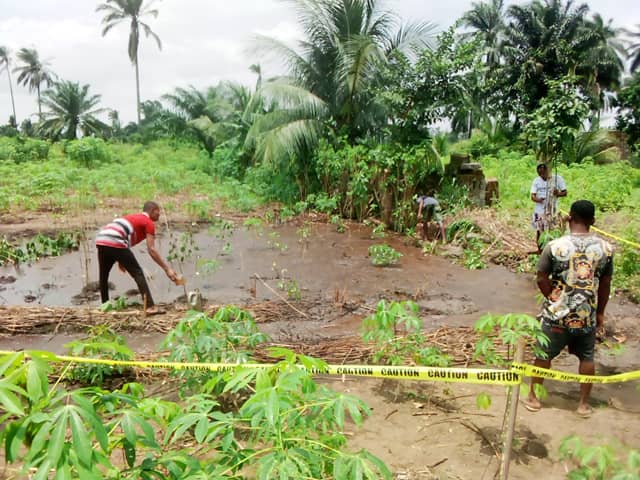
“Shell has been trying to clean up the mess of 2008/2009 and this one just happened a few days ago,” he told TheCable.
Advertisement
“It occurred from a rusted pipeline in the soil. From every indication, the cause of the spill is Shell’s equipment failure.”
The National Oil Spill Detection and Response Agency (NOSDRA) confirmed the incident to TheCable.
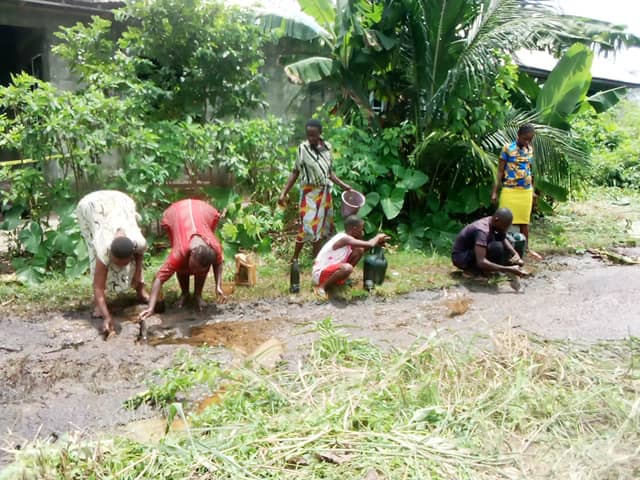
Idris Musa, director-general, NOSDRA, described the incident as a liquid release, adding that a joint investigation visit (JIV) was launched on Wednesday.
“It is a liquid release. It is a mixture of residual oil and water, and it happened on a 28-inch Trans-Niger pipeline,” he told TheCable.
Advertisement
“The joint investigation visit (JIV) started a day before yesterday (Wednesday).”
He, however, said there were “some kind of community disturbances because they thought it was another oil spill”.
“People were pacified, and they kick-started JIV proper yesterday Thursday). It wasn’t an oil leak, it was a liquid release,” Musa said.
Advertisement
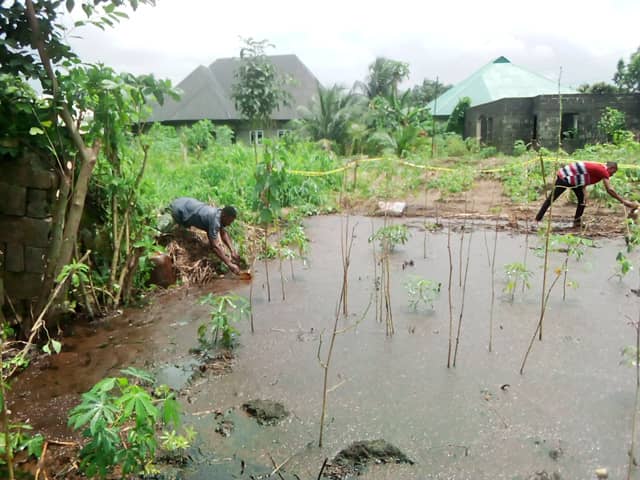
He further stressed that “the cause of the liquid release would be made public by Saturday after the JIV was finalised”, adding that the pipelines are not producing because of “oil theft”.
Advertisement
An insider at SPDC told TheCable that the pipeline was currently not in use but was being flushed regularly “to make sure it is fine”, adding that the company had warned other oil firms that “you cannot guarantee what you will get” due to oil theft.
Also speaking to TheCable, Fyneface Dumnamene, executive director of Youths and Environmental Advocacy Centre (YEAC), said his organisation raised awareness of the incident when his team visited the facility on Wednesday.
Advertisement
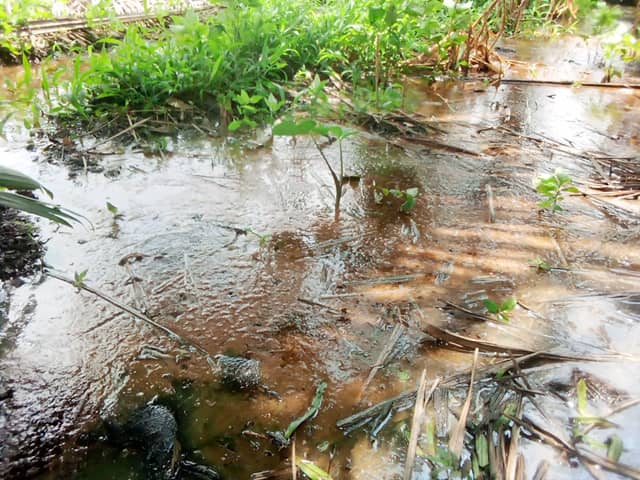
“It started on the 2nd of August by night. People woke to see the spill everywhere in the community, and it occurred right in the community at a place that neither Shell nor NOSDRA can blame on the community people as being an act of sabotage. But we are still waiting for the joint investigative report (JIV),” he said.
Waking up to the leak, he added that “people started scooping the product into containers”.
Advertisement
“The odour of the product is perceived everywhere, kilometres away from where it happened, and the coming of NOSDRA made it such that they had to cordon off the area with tapes. And the product was boiling and oozing from the ground and spilling into a lot of farmlands and destroying a lot of crops and plants and affecting the livelihood of the people there,” he said.
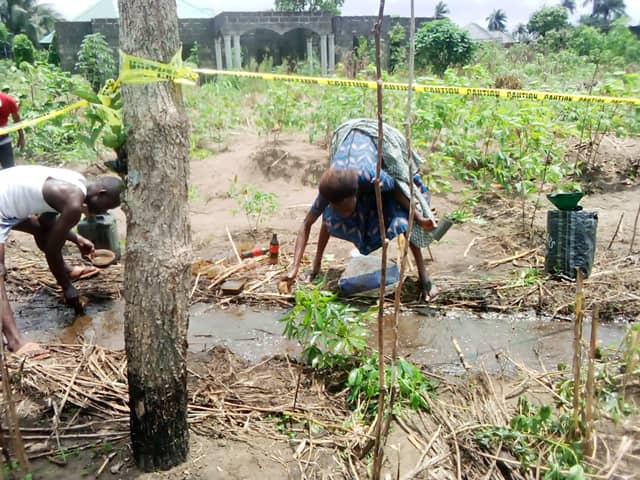
Commenting on the incident, A spokesperson for the SPDC said: “Owing to the level of theft, the SPDC JV-owned Trans-Niger Pipeline (TNP) has not been carrying crude oil since mid-June”.
The Trans-Niger Pipeline, a major pipeline capable of transporting about 180,000 barrels of crude per day, had been reported to be moribund since mid-June due to theft.
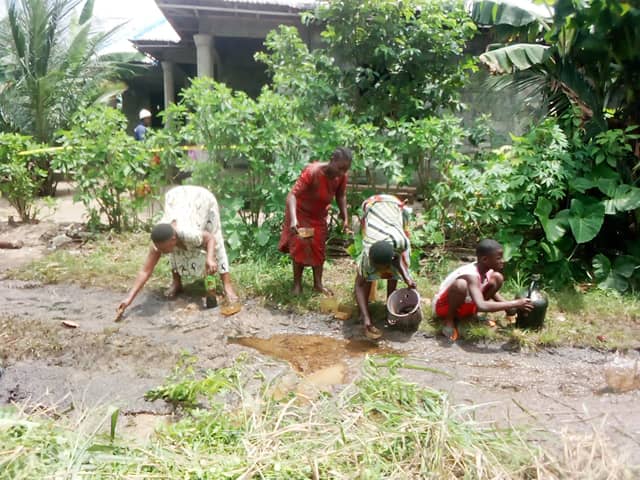
Add a comment
